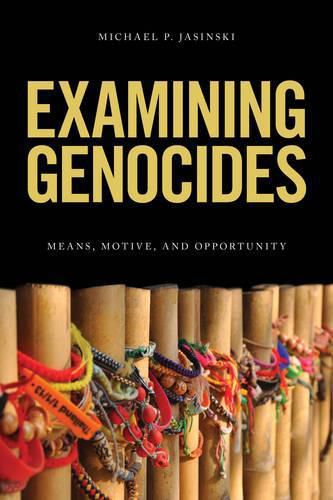Readings Newsletter
Become a Readings Member to make your shopping experience even easier.
Sign in or sign up for free!
You’re not far away from qualifying for FREE standard shipping within Australia
You’ve qualified for FREE standard shipping within Australia
The cart is loading…






Mass killing through genocide haunts humanity as one of the most horrific forms of warfare. Scholars seek to understand what causes such violence, but it is still difficult to predict the onset of genocide. Why does violence sometime stop short of the genocide threshold, whilst others cross the threshold? Why do some genocides escalate to the point of triggering the state’s collapse? Finally, why are some groups targeted and others spared?
Examining Genocide considers these questions by interrogating the interaction of three sets of conditions. These are: a societal crisis that creates a need for mass mobilization to heal the fractured public and address its material concerns; the stereotype associated with an eligible target for scapegoating; and the leadership preferences and skills of the chief executive of an authoritarian or poorly institutionalized state in question. Exploring case studies that cover various levels and instances of genocide, this book offers new insights to this highly researched field for scholars and students alike.
$9.00 standard shipping within Australia
FREE standard shipping within Australia for orders over $100.00
Express & International shipping calculated at checkout
Mass killing through genocide haunts humanity as one of the most horrific forms of warfare. Scholars seek to understand what causes such violence, but it is still difficult to predict the onset of genocide. Why does violence sometime stop short of the genocide threshold, whilst others cross the threshold? Why do some genocides escalate to the point of triggering the state’s collapse? Finally, why are some groups targeted and others spared?
Examining Genocide considers these questions by interrogating the interaction of three sets of conditions. These are: a societal crisis that creates a need for mass mobilization to heal the fractured public and address its material concerns; the stereotype associated with an eligible target for scapegoating; and the leadership preferences and skills of the chief executive of an authoritarian or poorly institutionalized state in question. Exploring case studies that cover various levels and instances of genocide, this book offers new insights to this highly researched field for scholars and students alike.